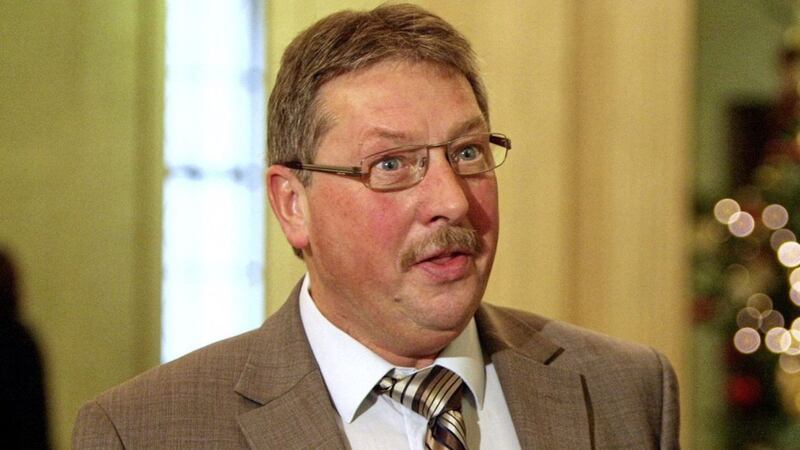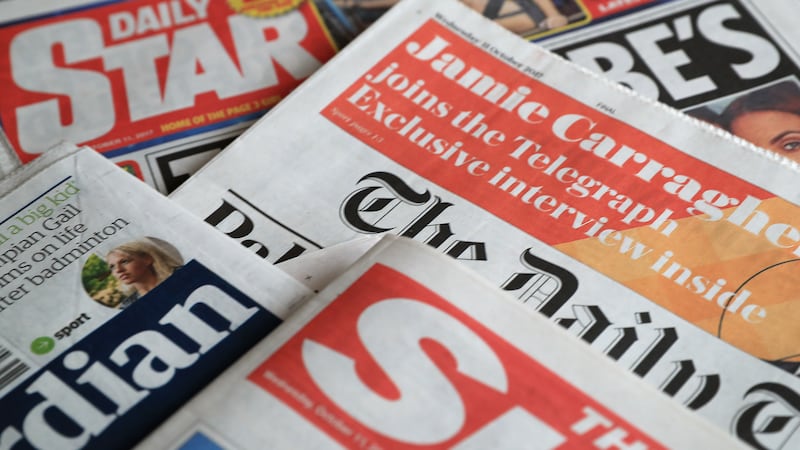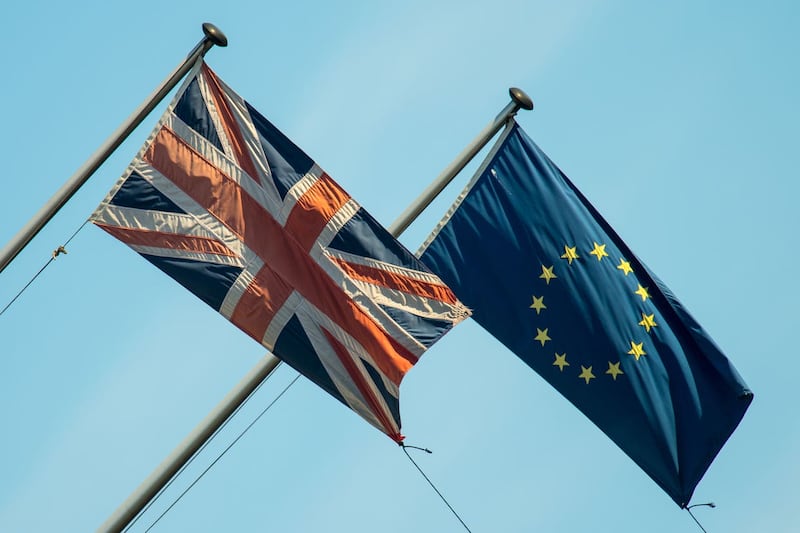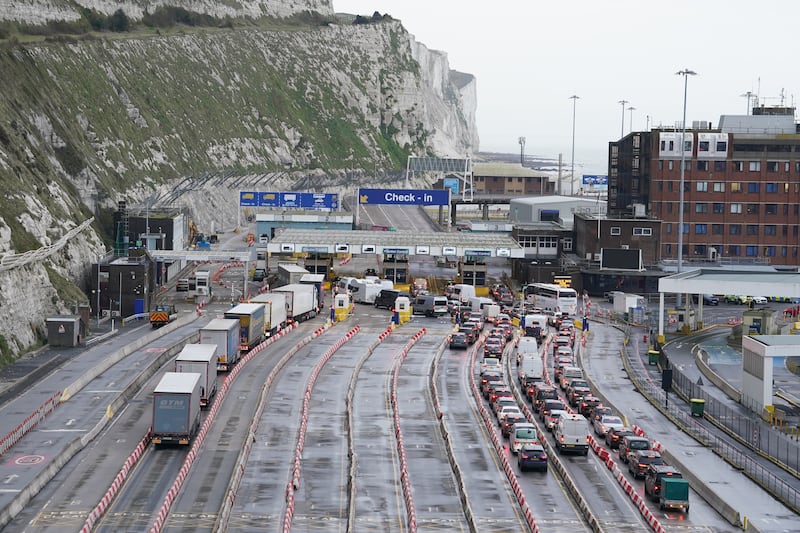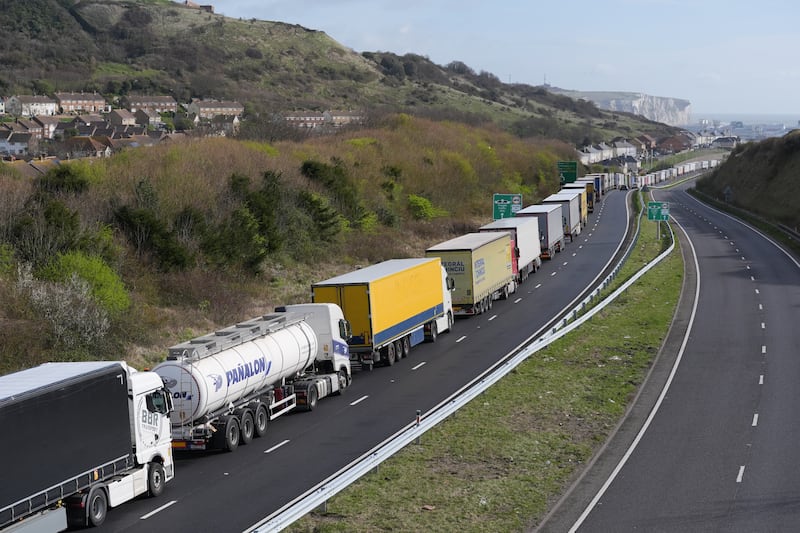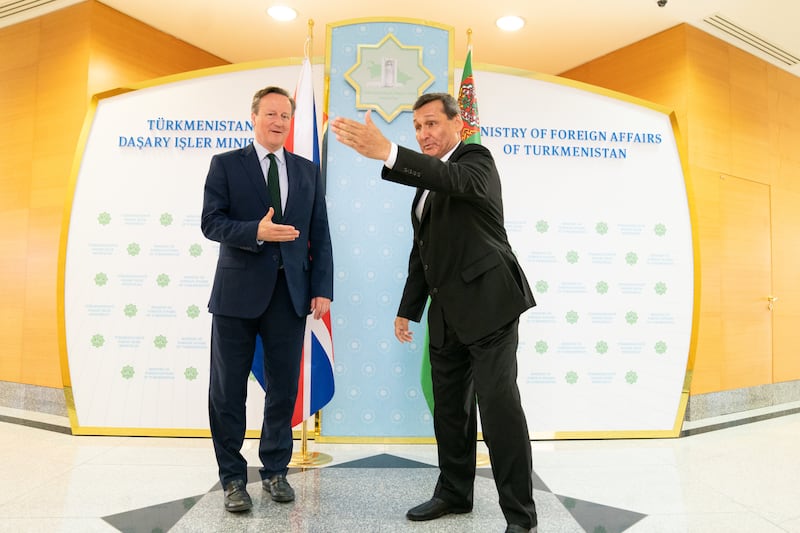Agreement on a Brexit deal with Brussels will create a "new dynamic" in Parliament which would help secure support for Theresa May's plans, a key ally of the British prime minister has claimed.
The fragile alliance keeping Ms May in power has been strained as the DUP railed against measures it fears will create a border down the Irish Sea between Northern Ireland and the rest of the UK.
But David Lidington, Mrs May's de facto deputy prime minister, said he hoped that once a deal was on the table MPs would rally behind it.
Hopes of an imminent breakthrough in the Brexit negotiations have so far failed to be met.
But both Mr Lidington and Taoiseach Leo Varadkar suggested a deal could be reached between the UK and EU in the coming weeks.
The taoiseach said: "A successful outcome is not guaranteed but I think it is possible in the next couple of weeks."
Read More:
- Arlene Foster's 'alarm bells' as DUP warns Tories of Brexit deal 'consequences'
- Tánaiste Simon Coveney warns over assuming border deal imminent
- Garda and PSNI chiefs vow to continue cooperation post-Brexit
Tensions between Mrs May and her DUP allies have been exposed amid concerns about measures aimed at avoiding a hard border on the island of Ireland.
DUP leader Arlene Foster said the British prime minister appeared "wedded to the idea of a border down the Irish Sea" despite Downing Street's repeated assurances to the contrary.
The response of the DUP has caused frustration in Downing Street, with sources insisting that Ms May was not hiding behind "weasel words" and had stressed that she would not accept a deal which saw Northern Ireland hived off.
A leaked letter from Ms May in reply to an earlier message from Mrs Foster and her deputy, Nigel Dodds, set out the British prime minister's approach.
She wants a "backstop" measure which would create a temporary "joint customs territory" with the EU for the whole of the UK.
But Brussels appears set to insist on a Northern Ireland-only "backstop to the backstop" in case negotiations on a wider UK approach break down or any time limit on it expires.
In the letter, obtained by the Times, Mrs May said: "I am clear that I could not accept there being any circumstances or conditions in which that 'backstop to the backstop', which would break up the UK customs territory, could come in to force."
But she acknowledged that the "unique circumstances" of Northern Ireland "could require specific alignment solutions in some scenarios" on regulations.
The scope of any alignment with Brussels' rules would be limited to what is "strictly necessary" to avoid a hard border.
The DUP has interpreted the wording of her letter to mean that specific Northern Ireland measures will be contained in the Brexit divorce deal despite Ms May's assurances.
Ms Foster said: "It appears the prime minister is wedded to the idea of a border down the Irish Sea with Northern Ireland in the EU single market regulatory regime."
DUP Brexit spokesman Sammy Wilson told BBC Radio 4's Today programme "we want to trust the prime minister" but "you have to judge any promise by what is actually delivered in an agreement".
The party's Westminster leader, Mr Dodds, warned on Sky News: "I think the prime minister will hopefully realise what can be got through parliament and what can't."
Any version of the backstop would apply unless and until a wider UK-EU deal on the future relationship solved the issue of how to avoid a hard border with Ireland.
The prime minister relies on the support of the DUP's 10 MPs for her Commons majority, votes which will be crucial as she attempts to get a deal through Parliament.
At the British-Irish Council summit in the Isle of Man, Mr Lidington said: "The prime minister has always been very clear we won't accept something that involves carving out Northern Ireland from the rest of the UK."
He said a UK-EU deal would involve "compromises, give and take on all sides" but when faced with "product on the table" in the form of an agreement backed by all 28 governments there could be a shift in attitude at Westminster.
"People will need to ask themselves what is it that is going to be in the best interests of those who sent them to Westminster to represent them, to ensure that we maintain living standards and investment and prosperity and employment in our country.
"I hope and I believe that we can secure that majority in Parliament for the agreement."
Mr Varadkar, who was also at the Isle of Man summit, said "it is more likely than not that we will be able to conclude an agreement" in the coming weeks but "lots of things can go wrong" - including having to get a deal through Westminster and the European Parliament.
"Even when all of that is done, then we begin the talks on the future relationship," he added.
"There is no clean break here, Brexit is going to go on for a very long time."
Speaking at the British-Irish Council meeting, Secretary of State Karen Bradley told the Press Association: "The negotiating teams are working hard to get a good deal that can be taken to the British Parliament.
"If we've got an agreement, with the UK (government) recommending the deal as a good deal for the whole UK, and the 27 members of the EU also accepting the deal, I think that's the point at which people need to come together, vote for that deal and let's get on with delivering on the wish of the British people to leave the EU."
Ms Bradley said that no-one wanted to see the backstop put into effect after Brexit.
"This is an insurance policy none of us ever want to use," she said.
She stressed that paragraph 50 of last December's Joint Report by Theresa May and European Commission president Jean-Claude Juncker stated that there will be "no regulatory barriers created between Northern Ireland and Great Britain and unfettered access to the market of the United Kingdom for Northern Irish businesses".
"That is also equally important," said Ms Bradley.
